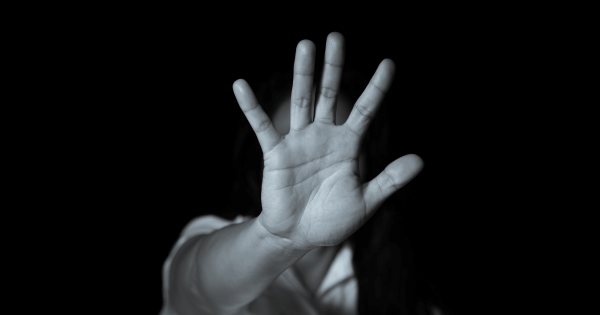The Impact

The Impact of Domestic Abuse and Childhood Trauma
Domestic abuse leaves deep scars, not only on the body but also on the mind and soul. For many survivors, the journey to healing is fraught with challenges, yet it is one of profound transformation.
Domestic abuse is a pervasive issue, affecting millions of women, men and children worldwide. Its impact extends beyond the immediate physical injuries; it profoundly affects mental and emotional well-being. One crucial aspect often overlooked is how childhood trauma, including exposure to domestic violence, can lead to long-term health problems in adulthood.
Studies reveal that children who witness or experience domestic abuse are at higher risk for a range of health issues, including chronic diseases, mental health disorders, and behavioural problems. The stress and fear from such experiences can alter brain development and impact bodily systems, leading to conditions like heart disease, obesity, and autoimmune disorders. They are also at higher risk of experiencing domestic abuse within their own intimate relationships in later life.
Understanding these connections is vital for supporting those who have lived through such traumatic experiences. As a coach, I focus on holistic healing, addressing both the psychological and physical repercussions of abuse.
It is important to delve deeper into the specific challenges faced by children who witness domestic abuse so as parents, caregivers and those around them can understand and support them more effectively.
These challenges are multi-faceted, impacting behavioural, emotional, and mental aspects of their lives. Without adequate support, these children may carry the trauma into adulthood, affecting their overall health and ability to form healthy relationships.
recovery.
These challenges are multi-faceted, impacting behavioural, emotional, and mental aspects of their lives. Without adequate support, these children may carry the trauma into adulthood, affecting their overall health and ability to form healthy relationships.
recovery.
Behavioural Challenges
Children exposed to domestic abuse often exhibit a range of behavioural changes. They may display aggression, hostility, or defiance as a means of coping with their environment. Conversely, some may become withdrawn, showing signs of anxiety or depression. School performance can suffer due to difficulties in concentration and engagement, leading to academic struggles. These behavioural changes are a cry for help, signalling the need for intervention and support.
Emotional Challenges
Emotionally, these children live in a state of heightened stress and fear. The home, which should be a safe haven, becomes a place of unpredictability and danger. This constant anxiety can lead to emotional dysregulation, making it difficult for them to process and express their feelings appropriately. They may feel a deep sense of guilt, blaming themselves for the violence they witness. This emotional turmoil can result in low self-esteem and difficulties in forming trusting relationships.
Mental Health Challenges
The mental health implications are profound. Children who witness domestic abuse are at an increased risk of developing mental health disorders such as PTSD, anxiety, and depression. The trauma can disrupt normal brain development, affecting cognitive functions and emotional regulation. These children may also experience nightmares and flashbacks, reliving the traumatic events repeatedly.
Long-term Effects
Without proper intervention, the long-term effects can be devastating. These children are more likely to engage in risky behaviours, such as substance abuse, as a means of coping with their unresolved trauma. They are also at a higher risk of experiencing domestic abuse in their own intimate relationships, perpetuating a cycle of violence. Chronic stress from childhood trauma can lead to serious health issues, including heart disease, obesity, and autoimmune disorders.
Breaking the Cycle
Understanding these connections is vital for supporting those who have lived through such traumatic experiences. Early intervention is crucial and providing a safe and supportive environment where children can express their feelings and learn healthy coping mechanisms is essential. Implementing early, targeted interventions can have a positive impact and can reduce the long term effects.
Therapeutic approaches, such as counselling and trauma-focused therapy, can help in mitigating the long-term effects of trauma.
Caregivers play a pivotal role in supporting children who have witnessed domestic abuse. Their actions and responses can significantly influence a child's healing process and overall well-being. Here are several ways caregivers can provide effective support:
Establish a Sense of Safety
Create a Safe Environment - Ensure the child feels physically and emotionally safe. This involves creating a stable and predictable routine, where the child knows what to expect and feels secure.
Reassure the Child - Continuously reassure the child that the abuse was not their fault and that they are now in a safe place. Simple, consistent messages of safety and love can be incredibly powerful.
Emotional Support Listen Actively - Encourage the child to express their feelings and listen without judgment. Validate their emotions, letting them know it's okay to feel angry, scared, or sad.
Be Patient and Understanding - Understand that the child might exhibit a range of emotions and behaviours as they process their trauma. Patience and empathy are crucial.
Professional Help
Seek Counselling - Professional therapy, particularly trauma-focused therapy, can be very beneficial. Therapists can provide children with tools to process their emotions and develop healthy coping mechanisms.
Educate Yourself - Caregivers should educate themselves about the impacts of trauma and effective ways to support a child. Understanding what the child is going through can help caregivers respond more effectively.
Encourage Healthy Expression
Provide Creative Outlets - Encourage the child to express their emotions through creative activities like drawing, painting, or writing. These outlets can help them process their experiences in a non-verbal way.
Promote Physical Activity - Physical activities can help reduce stress and anxiety. Encourage the child to participate in sports or other physical activities they enjoy.
Consistent and Loving Care
Show Affection - Regularly show the child love and affection. This can help rebuild their sense of trust and security.
Be Consistent - Consistency in rules and expectations provides a sense of normalcy and security. It’s important for the child to know that while their world may have been chaotic, there are still reliable structures in place.
Build Resilience
Teach Coping Skills - Help the child develop coping skills to manage their emotions. Techniques like deep breathing, mindfulness, and journaling can be very helpful.
Foster Connections - Encourage the child to build healthy relationships with peers and other trusted adults. Positive social interactions can provide additional support and a sense of normalcy.
Advocate for the Child
Work with Schools - Collaborate with teachers and school counsellors to ensure the child receives the support they need academically and emotionally.
Monitor Progress - Keep an eye on the child's emotional and behavioural development. If there are concerns, seek professional advice promptly.
Self-Care for Caregivers
Seek Support - Caregivers should also seek support for themselves. Dealing with the aftermath of domestic abuse can be overwhelming, and having a support system in place is crucial.
Practice Self-Care - Maintaining your own mental and emotional health is essential. Caregivers need to be in a good place themselves to provide the best support for the child.
By providing a nurturing and supportive environment, caregivers can help children who have witnessed domestic abuse begin the healing process and develop the resilience they need to thrive.
From A Child Who Experienced
As a child who experienced domestic abuse, the most important advice I can give is to listen to them. Offer extra care, more snuggles, and greater understanding. Be incredibly patient and try to understand the reasons behind their behavior instead of immediately resorting to punishment.
Their sense of safety and their world has been shattered, and they often don't have the words to express their emotions. This confusion frequently manifests as challenging or unsafe behavior.
Need Support?
If you or someone you know is struggling with the aftermath of domestic abuse, remember that help is available. Reach out, connect, and take the first step towards a brighter, more empowered future. Together, we can break the cycle of abuse and build a world where everyone feels safe, valued, and strong.
Idas

Your life, Your choice. Free-Spirited Coach Jennifer Taylor here to help you gain the choices within life that you desire. Ready to break down society's pressures and find your own path? Let's do this!
Mental Health Advocate | Domestic Abuse Survivor | Exploring Human Behaviour & Wellbeing | Trauma Informed
coach[koh-ch] noun
A person dedicated to bringing the best out of you by encouraging, inspiring and believing.
info@jenntaylor.co.uk
www.jenntaylor.co.uk
078078 52292

